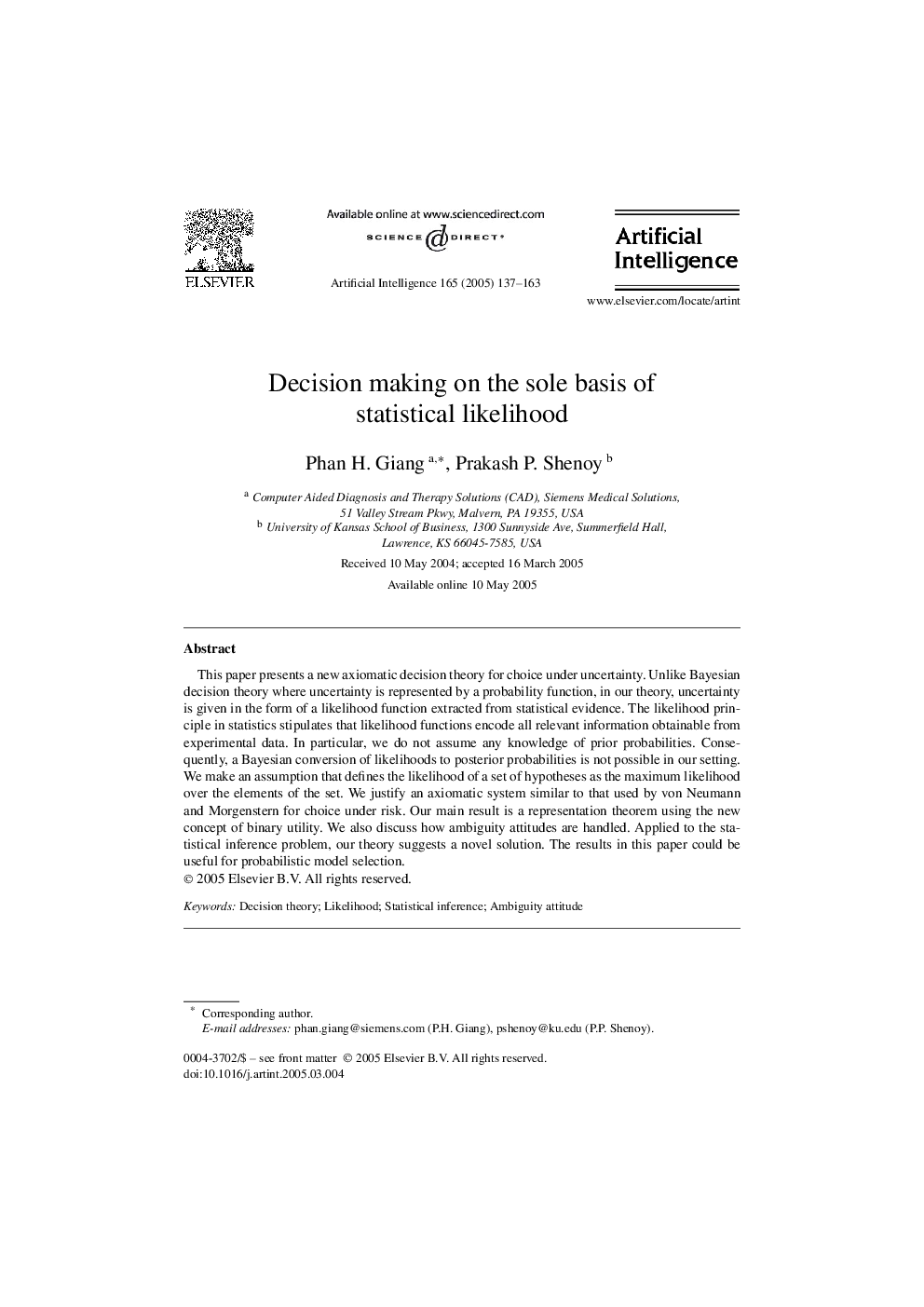| Article ID | Journal | Published Year | Pages | File Type |
|---|---|---|---|---|
| 10320398 | Artificial Intelligence | 2005 | 27 Pages |
Abstract
This paper presents a new axiomatic decision theory for choice under uncertainty. Unlike Bayesian decision theory where uncertainty is represented by a probability function, in our theory, uncertainty is given in the form of a likelihood function extracted from statistical evidence. The likelihood principle in statistics stipulates that likelihood functions encode all relevant information obtainable from experimental data. In particular, we do not assume any knowledge of prior probabilities. Consequently, a Bayesian conversion of likelihoods to posterior probabilities is not possible in our setting. We make an assumption that defines the likelihood of a set of hypotheses as the maximum likelihood over the elements of the set. We justify an axiomatic system similar to that used by von Neumann and Morgenstern for choice under risk. Our main result is a representation theorem using the new concept of binary utility. We also discuss how ambiguity attitudes are handled. Applied to the statistical inference problem, our theory suggests a novel solution. The results in this paper could be useful for probabilistic model selection.
Related Topics
Physical Sciences and Engineering
Computer Science
Artificial Intelligence
Authors
Phan H. Giang, Prakash P. Shenoy,
